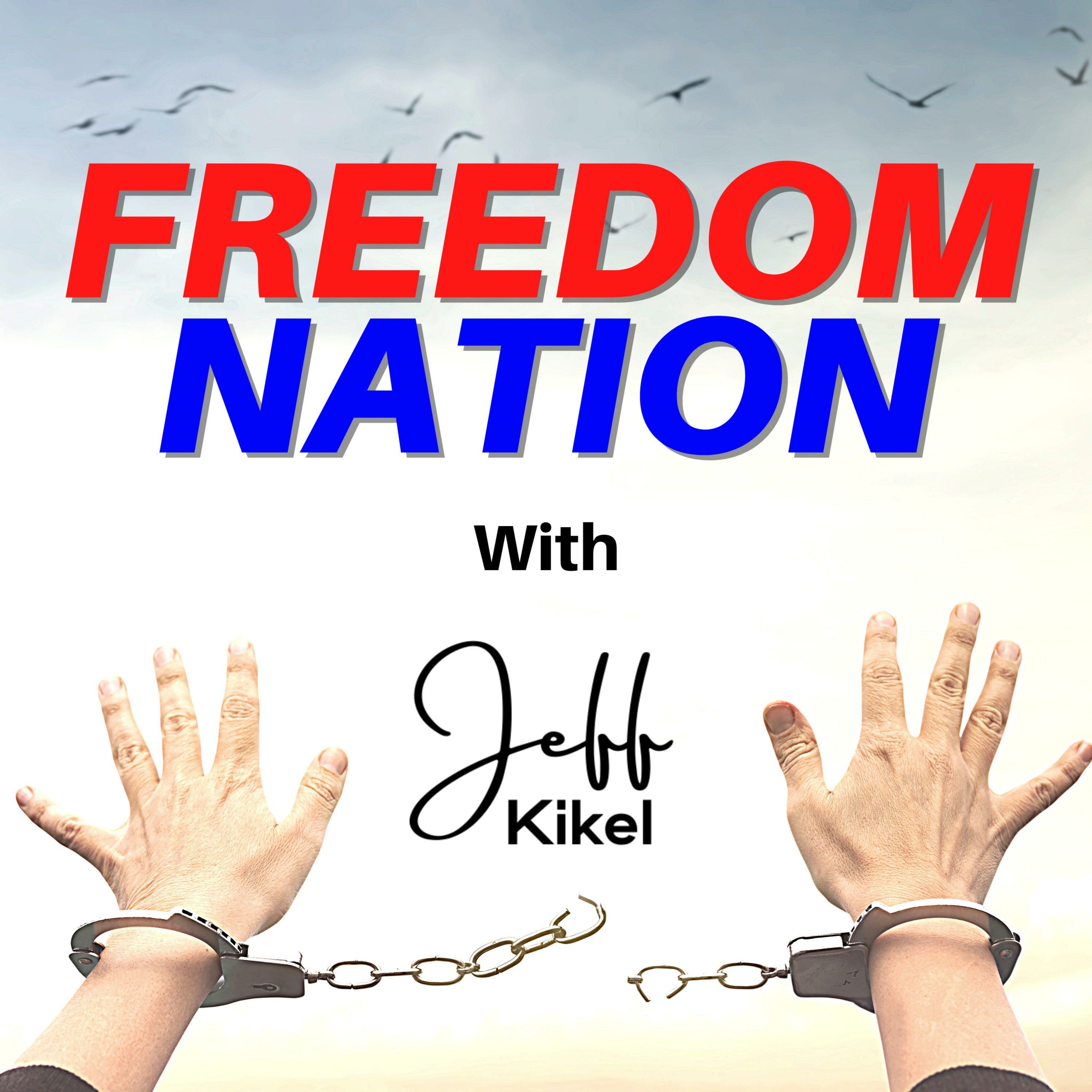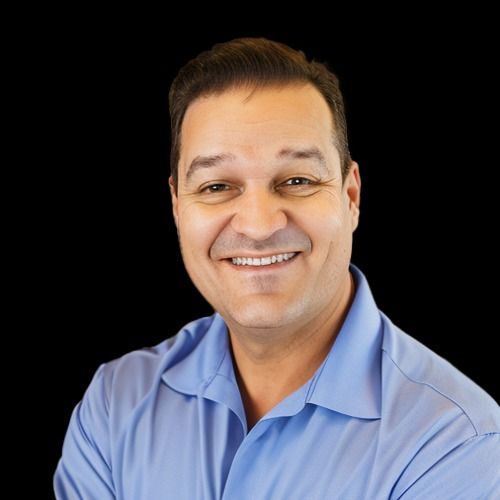Episode 132
Takeaways From The Total Money Makeover
In this episode, I'll share with you how The Total Money Makeover played a pivotal role in turning my financial situation around. When I first stumbled upon this book, my wife and I were facing some tough financial challenges. I'll walk you through the core principles of Ramsey's "Seven Baby Steps Plan," a sequence of actionable steps designed to guide you towards financial security and freedom. Whether you're just starting on your financial journey or looking to fine-tune your approach, "The Total Money Makeover" offers a roadmap that can lead you to success. Ramsey's simple yet effective approach resonated with me, even though some critics dismiss his ideas without really understanding them.
About Jeff:
Jeff spent the early part of his career working for others. Jeff had started 5 businesses that failed before he had his first success. Since that time he has learned the principles of a successful business and has been able to build and grow multiple seven-figure businesses. Jeff lives in the Austin area and is actively working in his community and supporting the growth of small businesses. He is a board member of the Incubator.Edu program at Vista Ridge High School and is on the board of directors of the Leander Educational Excellence Foundation
Connect with the Freedom Nation podcast at https://freedom-nation-podcast.captivate.fm/
Connect with Jeff:
Instagram: https://www.instagram.com/freedomnationpodcast/
Twitter: https://twitter.com/JeffKikel
LinkedIn: https://www.linkedin.com/in/jeffkikel/
Thanks for listening!
Thanks so much for listening to our podcast! If you enjoyed this episode and think that others could benefit from listening, please share it using the social media buttons on this page.
Do you have some feedback or questions about this episode? Leave a comment in the section below!
Subscribe to the podcast
If you would like to get automatic updates of new podcast episodes, you can subscribe to the podcast on Apple Podcasts or Stitcher. You can also subscribe in your favorite podcast app.
Leave us an Apple Podcasts review
Ratings and reviews from our listeners are extremely valuable to us and greatly appreciated. They help our podcast rank higher on Apple Podcasts, which exposes our show to more awesome listeners like you. If you have a minute, please leave an honest review on Apple Podcasts.
Transcript
Welcome to the Freedom Nation podcast with Jeff Kikel. On this show, Jeff shares his expertise in financial and retirement planning from a different perspective, planning for your Freedom Day, which is the first day that you wake up and have enough income or assets and do not have to go to work that day. Learn how to calculate what you need, how to generate income sources, and listen to interviews from others who've done it themselves get ready to experience your own Freedom Day.
Jeff Kikel:A Freedom Nation, it's Jeff here, once again with another of our book series on the top 10 books that I attribute to my financial independence and my freedom day. Today's book is The Total Money Makeover by Dave Ramsey. So I want to talk a little bit about this book of why it was so important to me, when I read the book, my wife and I were in some financial trouble. We had really overspent we didn't really have a budget, we didn't really focus on finances. And we really put ourselves in a kind of a tough situation and reading this book, although most of the people are and a lot of the people in the financial industry will poopoo a lot of what Dave Ramsey says. Most of them haven't read anything by him. First off. And to, you know, for me, this was a moment where I was kind of grasping at financial straws, so to speak. And I read the book, it was a very simple plan that you could put into place. And when I did it, it worked. It worked for me. Now, what this has led to this book led me to eventually working with the Ramsey organization, as a smart Wester pro advisor. And I have for the last nine years of my life, worked with the Ramsey organization, and worked with people that have come through something from the Ramsey organization, whether it's reading this book, whether it's going through Financial Peace University, listening to Dave on the radio, watching YouTube with Dave on it, but they all come to me. And you know, I help them to implement a lot of these steps. So let's walk through it. One of the things that that Dave teaches, and he used in this book is what's called the Seven baby steps plan. Now the the best way I've heard him explain this is, it's the advice that your grandmother would give you. It's just, we keep our teeth and it's simple, simple concepts. And it's a sequential series of things to do to help you get to where you are financially secure. So the first step is baby step one, saving $1,000 In a starter emergency fund, just to cover one it encourages you need to learn how to save, but it's a safety net, as you start to implement some of these other plans. Very simple save $1,000. If you don't know how to make $1,000 to save in there, watch one of our other videos on this channel about how you could make $1,000 in less than a month, baby. Step two is pay off all your debt except your house using the Debt Snowball Method. Now, for those of you that know the Freedom Day method, this is a core component of our debt reduction strategy is using the Debt Snowball. Really simple. You list all your debts out smallest to largest, you pay the minimum balance on every single one of those except for the smallest, which you take all your extra money in your budget that you can afford to put in and use that to pay down the smallest one first. Once that's done, you shift all that money to the next one, and then the next one and the next one. The next one. What happens is this starts to snowball and speed up and you start to see success. And it makes you want to be successful. It's simple behavior, behavioral finance, it makes you want to continue to do it. Step number three is save three to six months of expenses in a fully funded emergency fund. Once you're out of debt, what's the difference between three or six months the way I was explained it to clients is if you are somebody that has a pretty stable job, you've got a good solid w two job in an industry that doesn't fluctuate. Three months is more than enough. Six months. If you're in something that fluctuates more if you're in sales, or you're in an industry that can be a little scary at times. Six months is probably a little smarter more than that you do not need to be saving that in a savings account. That money after that point can be shifted over into longer term savings and can be set up for growth for a longer period of time. So once you've done that, now you're ready for baby. Step four, this is typically where I start to get to work with Ramsey people, they've gone through the first three steps, and now they're at four, they're beginning to save 15% of their household income towards retirement. Now, in the Freedom Day method, we still do this, we typically try and save 20%. But our 20% is directed at being able to buy our first assets that generate passive income. So slightly different philosophy there, for people that don't are that are kind of comfortable with the traditional path. I think 15% to 20% is fine, and you'll be there you'll you'll build money up, it's just gonna take a little bit longer. That's something I differ with Avon, and quite frankly, I differ with most of the financial industry, as well. Step number five, baby step five is saving for your child's college fund. So starting to put money away now that you're out of debt now that you've started to save for retirement putting money away for your child's college fund. Now, does that mean you have to fully fund all of college? No, absolutely not. And if it's going to affect your ability to save for your retirement, by funding your college fund for your children, think of this there is there are loans and scholarships and everything for school, there are not loans and scholarships for retirement. So you need to prioritize where you're spending your money. And look at ways to simplify College. There's tons of different ways. There'll be an upcoming series that I do on college freedom of talking to you all the different possible ways that you can put your kids through college, and still not spend that ton of money. But this is the time where you start to put away some money for their college fund. Step number six, baby step six is paying off your home early. When you have no other debts, you funded your retirement, you've got your kids taken care of anything extra that you have, that you can redirect towards paying off your home early. That's awesome. Now in the case of Freedom Day method, what would I tell you to do, I would tell you to redirect some of those savings towards creating passive income. Once that passive income is coming in, you can use that passive income to pay your home down at that point. And when it's done, you have all that passive income that you can use for something else. The final step, baby step number seven, build wealth and give generously. And this is something I wholeheartedly believe in. When I reached my freedom day, and I got the first payment out of my sale of my business. The literally the first thing I did, because it was right at the end of the year, and I wanted to make sure it was done is I fully funded about four to five years of gifting that I plan to do using what's called a charitable gift fund. The reason I did that is I was at a position where I could give generously and I gave 10% of what I made out of the sale of my business directly to that charitable gift fund. And I will use that money over the next several years for different causes and things that I believe in, I continually take money out of the income that I make the passive income I make. And that also goes to fund a lot of these activities because I believe the more that you give, the more you get back in the end, and I'm giving not to get anything back. But it's amazing how the universe does it and I call it the karma bank, you build karma out there and you're gonna get karma back. Another key component in this as you go through those seven baby steps is budgeting. So learning how to budget, learning how to do what's called zero based budgeting. So if you've watched our budgeting video in this series, I talk about three different types of budgeting. The one that Dave Ramsey believes in is zero based budgeting, basically, every dollar that comes in every month has a job, and you assign it that job, whether it's paying expenses, whether it's paying down debt, whether it's going towards savings, you're telling every single dollar where it's gonna go, because if you don't tell it where it's gonna go, it's just gonna find someplace to go and that's usually on crap that you didn't really need to begin with. It talks about avoiding debt. I think this is absolutely critical. Ideal differ a little bit with Dave on debt when it comes to real estate. I believe that real estate really only works if you leverage it. And this is kind of you know, this is controversial in the Ramsey world. But I just I believe in using leverage properly. That's probably my my background learning about real estate from Robert Kiyosaki and several others. But it's one of those things that I believe that there's good debt and there's bad debt and I do believe in avoiding bad debt, always cross the board, understanding insurance, understanding the different types of insurances that are out there, what you should have what you shouldn't have, really understanding how that fits into an overall financial plan in this book, myth busting some common financial advice, there's a lot of just horrible advice that's out there. You know, I think one of the worst of all is, well, if you don't need an emergency fund, if you have a credit card, well, that's just absolutely silly. Because that if you have that credit card, it's easy to use that credit card for other things that you look at as emergencies. And they're really not emergencies. Using an emergency fund, where it's actually cash that you have to spend, makes it feel much, much worse, when you have to use it. And that makes you have less emergencies in life, contentment, and giving, I think the ultimate goal of life, and I've talked about this with that, you know, with that section on building wealth and giving, it allows you to be content with life. And I encourage you to get to that point, because it's the most fun and it's the most rewarding, and it doesn't necessarily have to be money that you give, it can be your time as well. And that's something that doesn't require you to be at baby step seven. You can do that at any time, but be content in the fact that you're giving your time. One of the key things that I've seen a lot of people do from the Dave Ramsey world, if they came through financial peace, and they were successful, a lot of cases, they'll go back and teach Financial Peace University, through their churches or groups or whatever. They'll teach that so that people can be you know, so they're kind of passing that on for others. So Total Money Makeover, one of the best books I've read on just basic personal finances, and something that I used in my own personal world to get my finances in order that gave me the the grounding and the and the structure in my steps that I follow every single day as we continue to grow our wealth over time. Thanks a lot for joining us today. Make sure you subscribe to the channel because I'm going to be sharing more of these over the next several weeks. We're on number three. Number four is coming up next. And I look forward to sharing that book with you make sure you hit that little notification button as well. So you know when these come out. Thanks a lot, and we'll see you back here the very next time.


